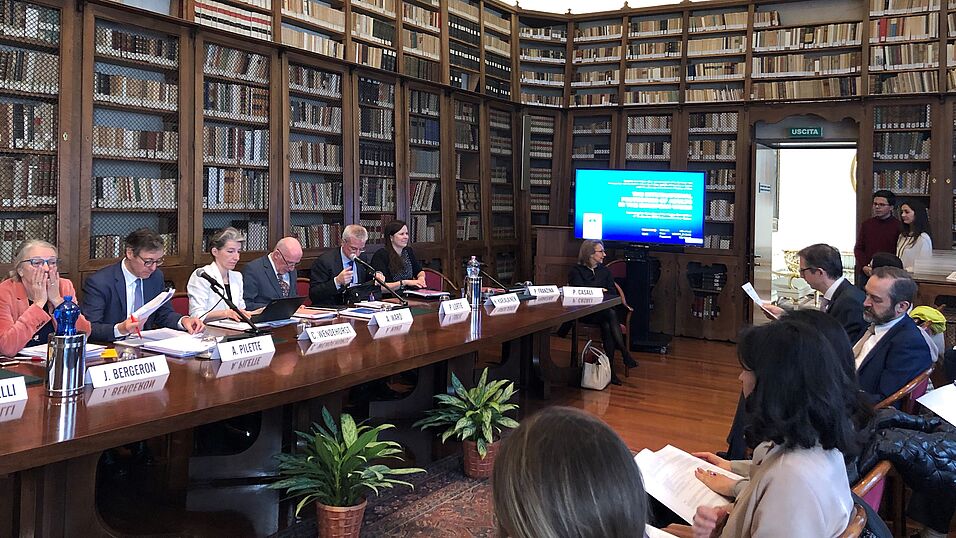The event, under the patronage of the ELI and the Council of Notaries of Milan, was organised with the support of the ELI Italian Hub and in cooperation with the Catholic University of Milan (Institute of International Studies). It hosted around 60 participants and was structured around four main panels.
The seminar, held in English, was opened by Pietro Franzina, the Project Reporter of the ELI Project on the Protection of Adults in International Situations, who warmly welcomed participants. Franzina expressed his gratitude to the ELI for making this project possible and briefly explained the main aims and background of the project. Paola Casali, representative of the Council of Notaries of Milan stressed the relevance of this topic and underlined how Notaries have a real interest in contributing to improving the scope of European law in the area of the protection of vulnerable adults. In her keynote speech, ELI President Christiane Wendehorst emphasised how the ELI has positively grown in size and influence over the past eight years across Europe. Wendehorst referred to the importance of this project and how well it fits within the overall ELI strategy of ‘serving the people, companies and organisations in Europe by improving the law or facilitating its application’ and ‘producing results which can be of immediate practical utility’.
The first panel of the seminar was devoted to the political and institutional aspects of the topic and involved representatives from all the main political and institutional actors in this area: the European Parliament (Joelle Bergeron, Member of the European Parliament); the European Commission (Patricia De Luca, Directorate General for Justice and Consumers); the Council of the European Union (Alain Pilette, Deputy Director DG JAI Justice and Home Affairs) and the Permanent Bureau of the Hague Conference (Philippe Lortie, First Secretary of the Hague Conference on Private International Law). The panelists explored possible desirable measures and avenues to improve the protection of adults within the EU. Moreover, De Luca explained the different obstacles that explain the slow ratification of the Hague Convention. Lortie also took the opportunity to outline the main outcomes and recommendations made at the last joint European Commission and the Hague Conference on Private International Law Conference in December 2018 in Brussels.
The second panel was dedicated to the notion of ‘Measure of Protection and the Relationship between the Law of Adults’ Protection and Neighboring Fields of Law’. The third panel, composed of several members of the ELI Expert Group on the Protection of Adults, further elaborated on topics including the choice of court by the adult concerned; the rules applicable to private mandates and the practical use of powers of representation. The last panel of the day was devoted to some insights into current practices. Among the speakers were Christelle Hilpert, Roberta Bardelle and Stefan Schlauss, Directors of the Offices that deal with private international law issues in the Ministers of France, Italy and Germany, respectively.
The seminar involved some fruitful and active discussions among participants and drew wide participation of political bodies and high-ranking governmental officials, in line with the goals of the project.

